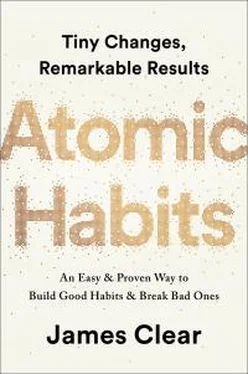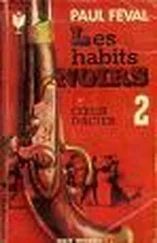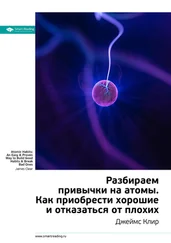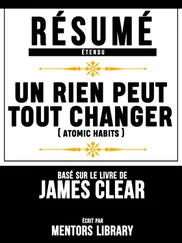AN IMPRINT OF PENGUIN RANDOM HOUSE LLC
375 Hudson Street
New York, New York 10014
Copyright © 2018 by James Clear
Penguin supports copyright. Copyright fuels creativity, encourages diverse voices, promotes free speech, and creates a vibrant culture. Thank you for buying an authorized edition of this book and for complying with copyright laws by not reproducing, scanning, or distributing any part of it in any form without permission. You are supporting writers and allowing Penguin to continue to publish books for every reader.
Ebook ISBN 9780735211308
While the author has made every effort to provide accurate Internet addresses at the time of publication, neither the publisher nor the author assumes any responsibility for errors, or for changes that occur after publication. Further, the publisher does not have any control over and does not assume any responsibility for author or third-party websites or their content.
Version_1
a·tom·ic
əˈtämik
an extremely small amount of a thing; the single irreducible unit of a larger system.
the source of immense energy or power.
hab·it
ˈhabət
a routine or practice performed regularly; an automatic response to a specific situation.
Contents
Title Page
Copyright
Epigraph
Introduction: My Story
The Fundamentals
Why Tiny Changes Make a Big Difference
1 The Surprising Power of Atomic Habits
2 How Your Habits Shape Your Identity (and Vice Versa)
3 How to Build Better Habits in 4 Simple Steps
The 1st Law
Make It Obvious
4 The Man Who Didn’t Look Right
5 The Best Way to Start a New Habit
6 Motivation Is Overrated; Environment Often Matters More
7 The Secret to Self-Control
The 2nd Law
Make It Attractive
8 How to Make a Habit Irresistible
9 The Role of Family and Friends in Shaping Your Habits
10 How to Find and Fix the Causes of Your Bad Habits
The 3rd Law
Make It Easy
11 Walk Slowly, but Never Backward
12 The Law of Least Effort
13 How to Stop Procrastinating by Using the Two-Minute Rule
14 How to Make Good Habits Inevitable and Bad Habits Impossible
The 4th Law
Make It Satisfying
15 The Cardinal Rule of Behavior Change
16 How to Stick with Good Habits Every Day
17 How an Accountability Partner Can Change Everything
Advanced Tactics
How to Go from Being Merely Good to Being Truly Great
18 The Truth About Talent (When Genes Matter and When They Don’t)
19 The Goldilocks Rule: How to Stay Motivated in Life and Work
20 The Downside of Creating Good Habits
Conclusion: The Secret to Results That Last
Appendix
What Should You Read Next?
Little Lessons from the Four Laws
How to Apply These Ideas to Business
How to Apply These Ideas to Parenting
Acknowledgments
Notes
Index
About the Author
Introduction My Story
ON THE FINAL day of my sophomore year of high school, I was hit in the face with a baseball bat. As my classmate took a full swing, the bat slipped out of his hands and came flying toward me before striking me directly between the eyes. I have no memory of the moment of impact.
The bat smashed into my face with such force that it crushed my nose into a distorted U-shape. The collision sent the soft tissue of my brain slamming into the inside of my skull. Immediately, a wave of swelling surged throughout my head. In a fraction of a second, I had a broken nose, multiple skull fractures, and two shattered eye sockets.
When I opened my eyes, I saw people staring at me and running over to help. I looked down and noticed spots of red on my clothes. One of my classmates took the shirt off his back and handed it to me. I used it to plug the stream of blood rushing from my broken nose. Shocked and confused, I was unaware of how seriously I had been injured.
My teacher looped his arm around my shoulder and we began the long walk to the nurse’s office: across the field, down the hill, and back into school. Random hands touched my sides, holding me upright. We took our time and walked slowly. Nobody realized that every minute mattered.
When we arrived at the nurse’s office, she asked me a series of questions.
“What year is it?”
“1998,” I answered. It was actually 2002.
“Who is the president of the United States?”
“Bill Clinton,” I said. The correct answer was George W. Bush.
“What is your mom’s name?”
“Uh. Um.” I stalled. Ten seconds passed.
“Patti,” I said casually, ignoring the fact that it had taken me ten seconds to remember my own mother’s name.
That is the last question I remember. My body was unable to handle the rapid swelling in my brain and I lost consciousness before the ambulance arrived. Minutes later, I was carried out of school and taken to the local hospital.
Shortly after arriving, my body began shutting down. I struggled with basic functions like swallowing and breathing. I had my first seizure of the day. Then I stopped breathing entirely. As the doctors hurried to supply me with oxygen, they also decided the local hospital was unequipped to handle the situation and ordered a helicopter to fly me to a larger hospital in Cincinnati.
I was rolled out of the emergency room doors and toward the helipad across the street. The stretcher rattled on a bumpy sidewalk as one nurse pushed me along while another pumped each breath into me by hand. My mother, who had arrived at the hospital a few moments before, climbed into the helicopter beside me. I remained unconscious and unable to breathe on my own as she held my hand during the flight.
While my mother rode with me in the helicopter, my father went home to check on my brother and sister and break the news to them. He choked back tears as he explained to my sister that he would miss her eighth-grade graduation ceremony that night. After passing my siblings off to family and friends, he drove to Cincinnati to meet my mother.
When my mom and I landed on the roof of the hospital, a team of nearly twenty doctors and nurses sprinted onto the helipad and wheeled me into the trauma unit. By this time, the swelling in my brain had become so severe that I was having repeated post-traumatic seizures. My broken bones needed to be fixed, but I was in no condition to undergo surgery. After yet another seizure—my third of the day—I was put into a medically induced coma and placed on a ventilator.
My parents were no strangers to this hospital. Ten years earlier, they had entered the same building on the ground floor after my sister was diagnosed with leukemia at age three. I was five at the time. My brother was just six months old. After two and a half years of chemotherapy treatments, spinal taps, and bone marrow biopsies, my little sister finally walked out of the hospital happy, healthy, and cancer free. And now, after ten years of normal life, my parents found themselves back in the same place with a different child.
While I slipped into a coma, the hospital sent a priest and a social worker to comfort my parents. It was the same priest who had met with them a decade earlier on the evening they found out my sister had cancer.
As day faded into night, a series of machines kept me alive. My parents slept restlessly on a hospital mattress—one moment they would collapse from fatigue, the next they would be wide awake with worry. My mother would tell me later, “It was one of the worst nights I’ve ever had.”
MY RECOVERY
Mercifully, by the next morning my breathing had rebounded to the point where the doctors felt comfortable releasing me from the coma. When I finally regained consciousness, I discovered that I had lost my ability to smell. As a test, a nurse asked me to blow my nose and sniff an apple juice box. My sense of smell returned, but—to everyone’s surprise—the act of blowing my nose forced air through the fractures in my eye socket and pushed my left eye outward. My eyeball bulged out of the socket, held precariously in place by my eyelid and the optic nerve attaching my eye to my brain.
Читать дальше




![Джеймс Клир - Атомные привычки [Как приобрести хорошие привычки и избавиться от плохих]](/books/403243/dzhejms-klir-atomnye-privychki-kak-priobresti-horosh-thumb.webp)



